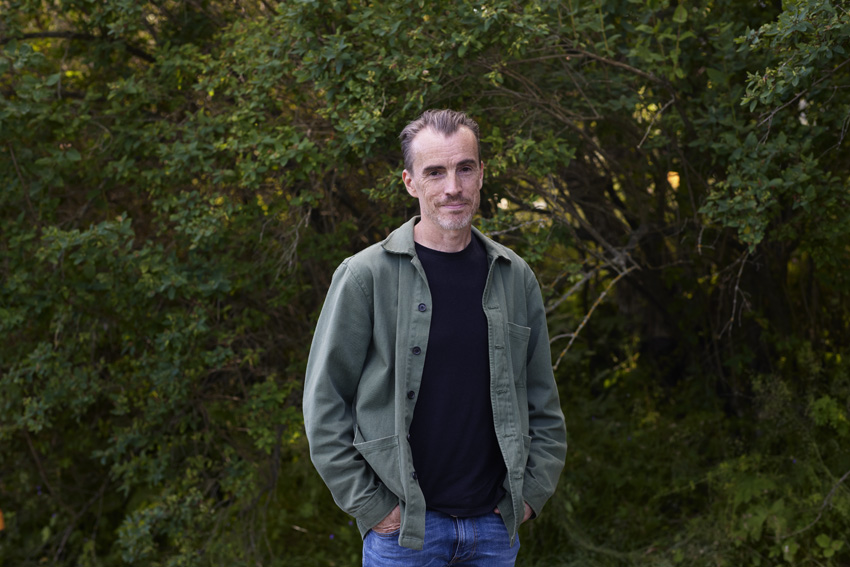“An innovative and joyful way to explain the role we individuals play in a food-producing ecosystem. Uses the meal experience as a tool to combine learning and enjoyment, and in this way make people understand the circularity of nitrogen (N), phosphorus (P), potassium (K), and the connection between soil quality so important to humanity, food produce and taste experiences.” Motivation of the jury.
Most people know that we need a range of nutrients to feel good, and that they have several functions in the body. Like carbohydrates for energy, proteins to build muscles, and vitamins to improve our eyesight and clot our blood when we are injured.
That topsoil also depends on nutrients to function properly is not as obvious to everyone. But it’s true: the complex mixture of microorganisms in the soil needs different nutrients in order for us to be able to grow crops in it, and for tomatoes and carrots to be both tasty and nutritious. Of the more than 100 elements on the planet, 15-20 are needed for the plants we grow. Three of the most important are nitrogen (N), phosphorus (P) and potassium (K).
It was thoughts like these that Patrik Sewerin had in the back of his mind when he first proposed the name “NPK dinners” during a workshop with staff at Gunnebo Castle in Mölndal a few years ago. He himself thinks it sounds “unsexy”, but the purpose was to describe a possible next step for working in the restaurant. A step that goes beyond organic and locally grown.
– If you ask people in town what organic is, many will answer: ‘It has to do with KRAV certification and things like that,’ says Sewerin. What I want with this is to make people understand that we are part of an ecological system.
Ten years ago, Sewerin was handpicked at Gunnebo Castle to lead the transition from conventional restaurant and bakery operations to serving 100 percent organic and seasonal food to the 70,000 guests who visit the castle each year. With Rune Kalf Hansen as a mentor throughout the first year, Sewerin managed to change course and establish a restaurant that was well ahead of its time. He collaborated with around 50 local producers to supply the restaurant and bakery with organic ingredients. The menus became conceptual sketches that constantly changed at the last second depending on what was available for the day. Vegetables took centre stage, while the high-quality meat, from animals that graze on chemical-free pastures, was served in smaller quantities.
The idea of the NPK dinners became more obvious when Sewerin took a break from his work as restaurant manager at the castle to help with the development of another restaurant business. At Gunnebo he worked exclusively with local producers who grow organically, but in his new assignment he would engage with producers primarily because they were local.
– I asked the producers if they used artificial fertilisers. I didn’t think the tomatoes were that good, although I didn’t want to say it out loud.
Sewerin thinks the idea of using locally produced food is fantastic and is exactly where the development should take us, but he has noticed that organic production has started to take a back seat.
– I have seen farms that dropped the certification even though they continue to grow organically, because they believe that the customer doesn’t care so much about organic anymore, but only that the food is locally produced.
The idea behind NPK dinners is to create meals where the intimate circular relation between what’s grown in the soil and what’s served on the plate is exposed and highlighted for the restaurant guest. It would start with taking a soil sample in a farm, analysing it, and then creating a menu around the results.
The menu is designed so that the guests understand in a practical and joyful way that, for example, cabbage, garlic and celery like nitrogen, but that nitrogen is quickly leached from the soil and therefore must be added all the time. That phosphorus is crucial for the plants’ development of roots, and fruit and flower formation, and that beans, rhubarb and leeks want good access to phosphorus. That fruit trees, berry bushes, spinach and onions feel good about potassium, and that potassium also provides resistance to disease.
– It would be fun to bring that knowledge to the guests: ‘Aha, do you mean that I can eat both meat and legumes, and that would help bind carbon to the earth? That I can help save the world without becoming a vegetarian?’
At the same time, food waste can be seen in a different light. By noting that it ends up in the compost which in turn benefits the soil, Sewerin’s dinners remove the negativity around leaving food on the plate.
For Sewerin, it is important that the NPK dinners are full of pleasure, free from the feeling of propaganda that can arise when you talk about this kind of thing.
– I myself notice how easy it is to sound like a crank when discussing soil health.
In order to take the idea of NPK dinners from the drawing board to practical execution and then quickly spread the concept to others, Patrik Sewerin and Gunnebo Slott were being coached by Circular Gastronomy and Emma Troedsson with her colleagues and partners at the business incubator Ideon Innovation in Lund. The first NPK dinner experience took place at Gunnebo Slott 18th September 2021.
